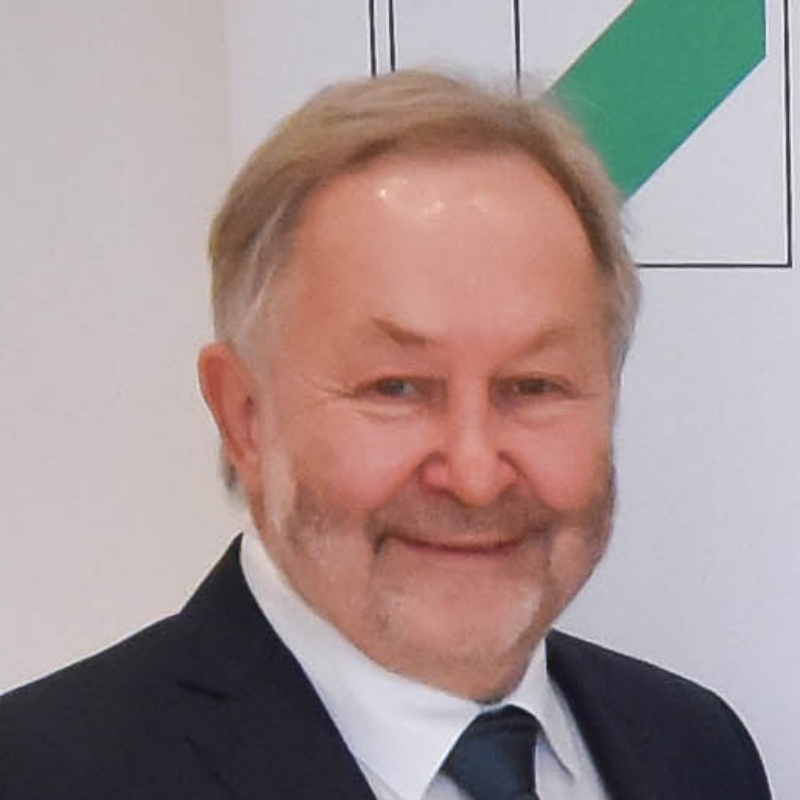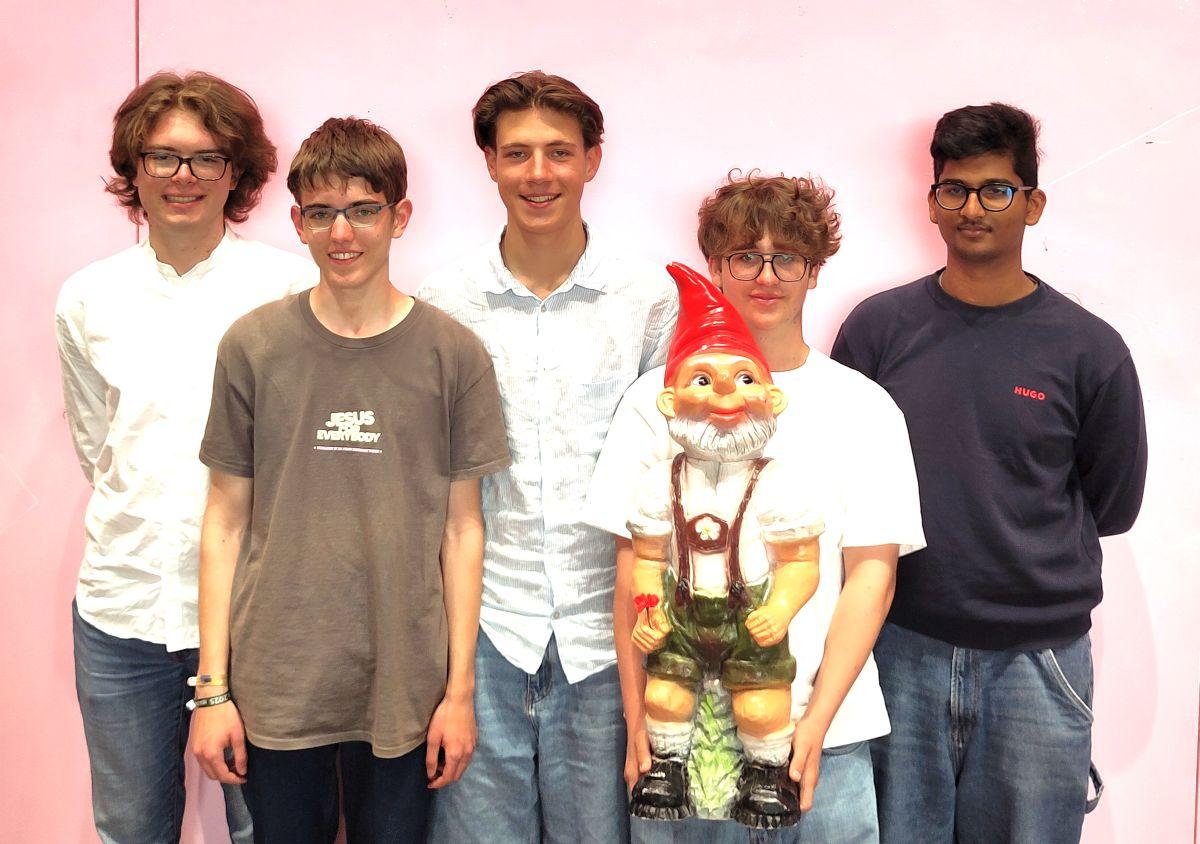Gold medal at the Physics World Championships
Benjamin Graf from Hochfranken-Gymnasium in Naila and supervised at the TAO Student Research Center (TAO-SFZ) at the University of Bayreuth has won a gold medal with the five-member German national team at the 38th International Young Physicists' Tournament (IYPT) in Lund, Sweden. Germany came third out of 35 world championship teams - only Singapore and China were just ahead of the German team. Physics Professor Walter Zimmermann played a key role in this further success at the Bayreuth TAO-SFZ and GYPT (German Young Physicists' Tournament) Center.
At this year's Physics World Championships from 29 June to 6 July, Benjamin Graf and his team members Benedikt Baum (Lörrach), Rusheel Sai Nuthalapati (Berlin), Maxim Rasch (Lörrach) and Alan Stranjak (Erlangen) made it through successful preliminary rounds to the final, where Singapore and China narrowly came out on top. The five members of the German national team were selected from over 250 applicants after the German Physics Championship GYPT.
In the preliminary rounds and the final round, three teams compete against each other in several ‘fights’ at the IYPT. One team presents its experimental and theoretical results, the second critically analyses the results of the opposing team and the third team evaluates both. In addition to technical confidence in the physical research topics, the competition also requires the comprehensible presentation of the results obtained as well as quick thinking and presentation skills, all in English. The judges assess the teams. ‘Every year, I am delighted to see how the young people grow professionally and personally with enthusiasm and commitment over the course of the competition,’ says Professor Walter Zimmermann, who recently was announced Emeritus of Honour from the University of Bayreuth.
The dedicated students appreciate the team spirit and the new contacts with many interesting like-minded people from five continents. Benjamin Graf: "We were accompanied by so many great physicists during the preparation at the GYPT centres. I was able to really exchange ideas at eye level - that was super valuable."
The German team was supervised at the annual world championship by Liane Brandt and Svea Lorenz from the German Physical Society (DPG). Svea Brandt comments: "It is fascinating to see the ambition, team spirit and scientific depth with which these young people work. The fact that they have been rewarded with a gold medal is simply fantastic".
The Bayreuth team, which supervises student research at the GYPT Centre and the TAO-SFZ, was also prominently represented at the world championships in Lund by former world championship participants and current students Frederik Gareis as a juror and Tarek Becic and Niklas Brütting as competition assistants.
The Wilhelm and Else Heraeus Foundation, which has been providing financial support for the entire national GYPT competition and the German participants in the international IYPT for many years, is also behind the successful promotion of young talent.
The German team's research project in the final
Of the twelve competition topics worked on by the German team, Benjamin Graf presented the results on droplet formation at a nozzle in the final, as is known from a leaking or not fully turned off tap. This seemingly everyday drop formation is also technologically important, e.g. in inkjet printers. In the simplest case, droplets form periodically at constant intervals. However, the time interval between drop formation can also be alternately shorter and longer. However, droplet detachment can be much more complex or even chaotic. In addition, after the detachment of a large leading droplet, several smaller satellite droplets can detach. How these fascinating processes depend on the slow flow speed through the nozzle, its diameter and the properties of the dripping liquid was measured in a controllable experimental setup with a high-resolution camera and convincingly explained using models.
The TAO Student Research Centre at the University of Bayreuth
The TAO Student Research Centre is the only location in Germany that has provided one (sometimes even two or three) of the five members of the national team for the twelfth time in a row since 2014. The Bayreuth Student Research Centre is part of the TechnologieAllianzOberfranken (TAO), which brings together four universities in Upper Franconia - the Universities of Bamberg and Bayreuth and the Universities of Applied Sciences in Coburg and Hof. It has set itself the task of discovering talent at an early stage, inspiring enthusiasm for science and promoting it. Prof. Dr Walter Zimmermann from the University of Bayreuth supervises the motivated students at the TAO student research centre.

Prof. Dr. Walter Zimmermann
Coordinator of TAO High School students Research Centre SFZ,
Wilhelm and Else Heraeus Senior Professorship Theoretical Physics
University of Bayreuth
Department of Physics
phone: +49 (0)921 / 55-3181
e-mail: walter.zimmermann@uni-bayreuth.de
web: https://www.zimmermann.physik.uni-bayreuth.de

Jennifer Opel
Deputy Press Officer
University of Bayreuth
phone: +49 (0)921 / 55-5357
e-mail: jennifer.opel@uni-bayreuth.de

